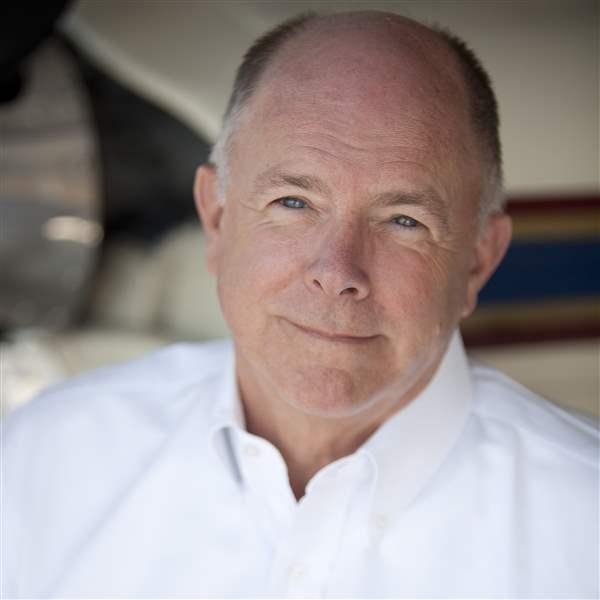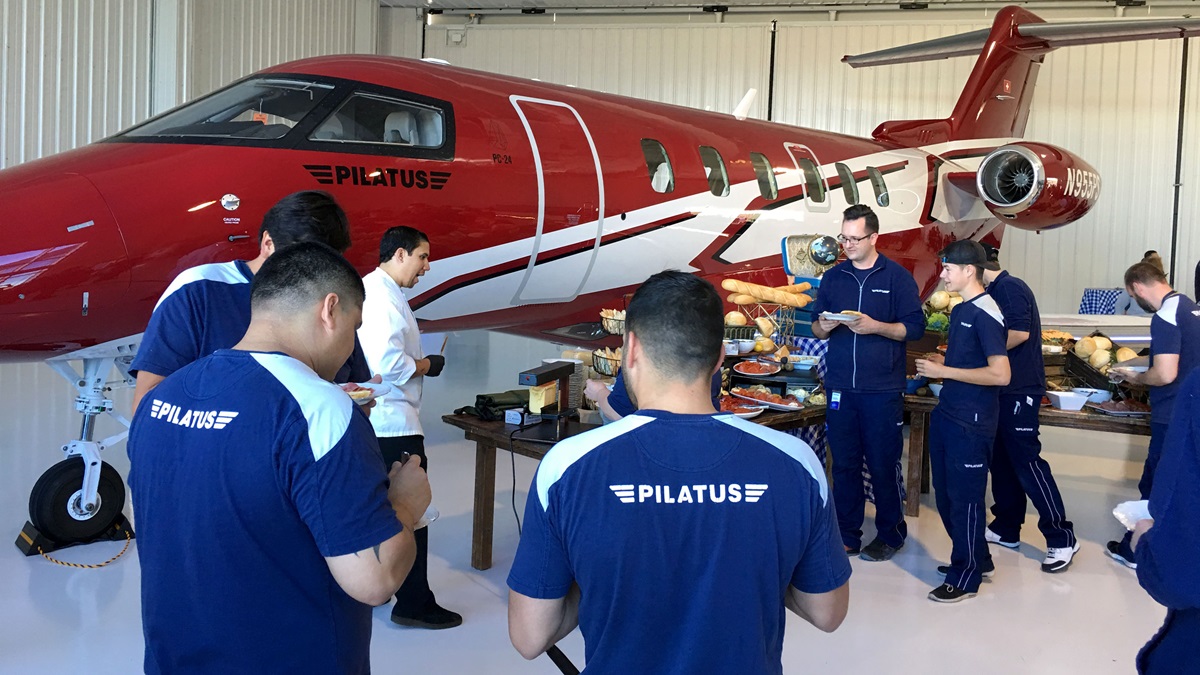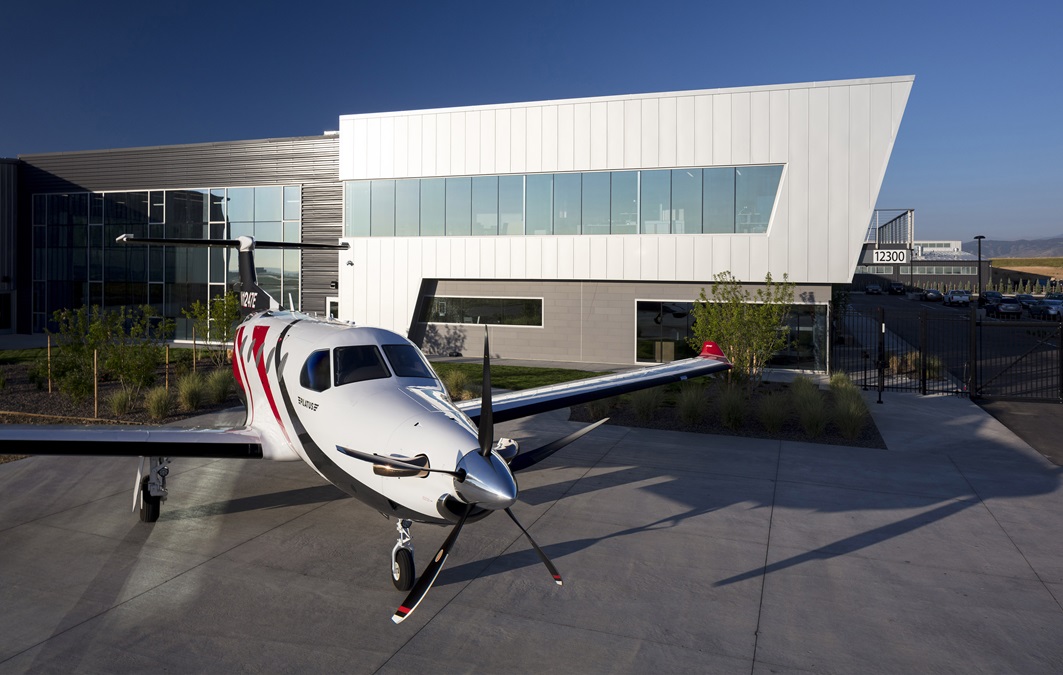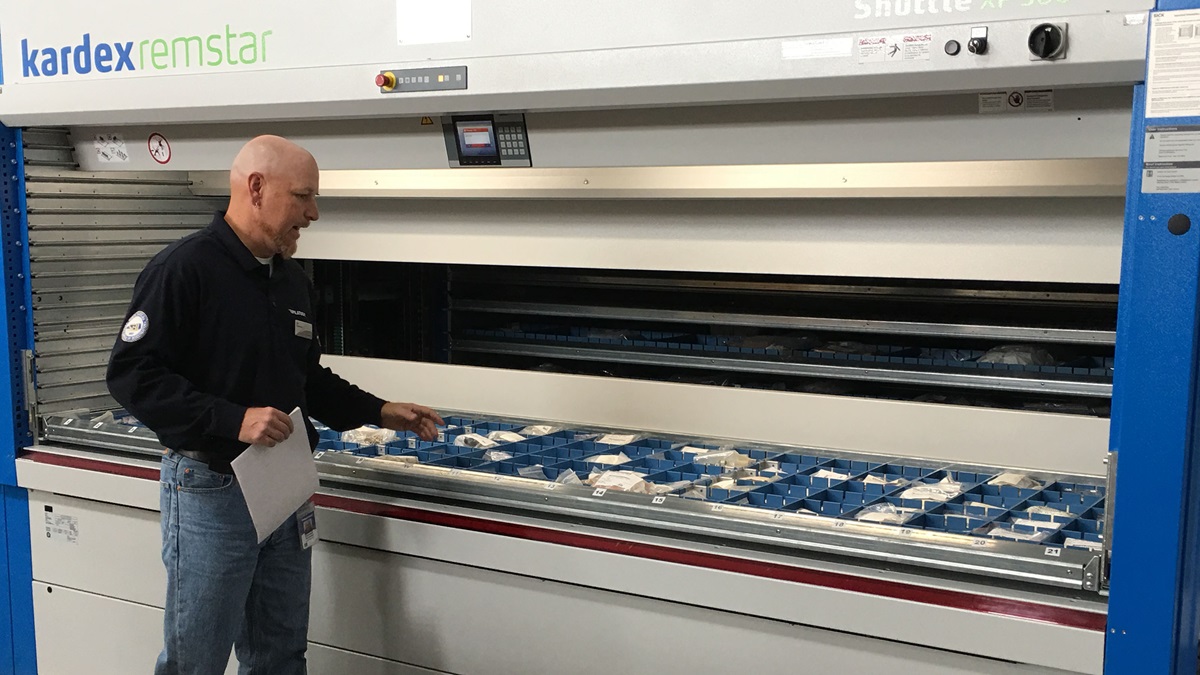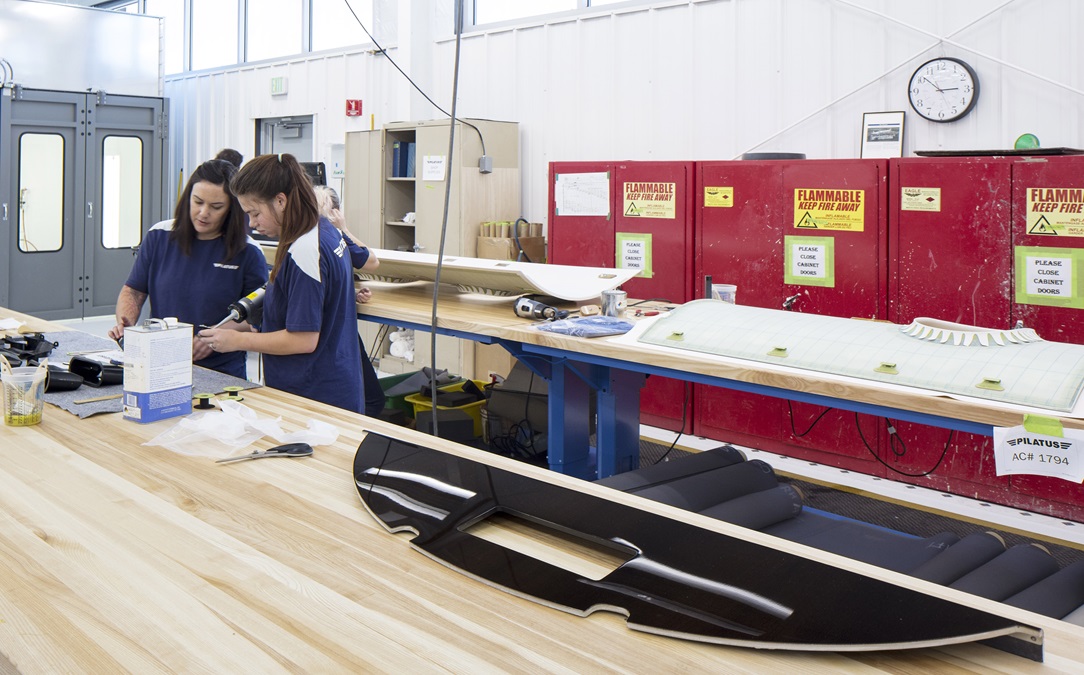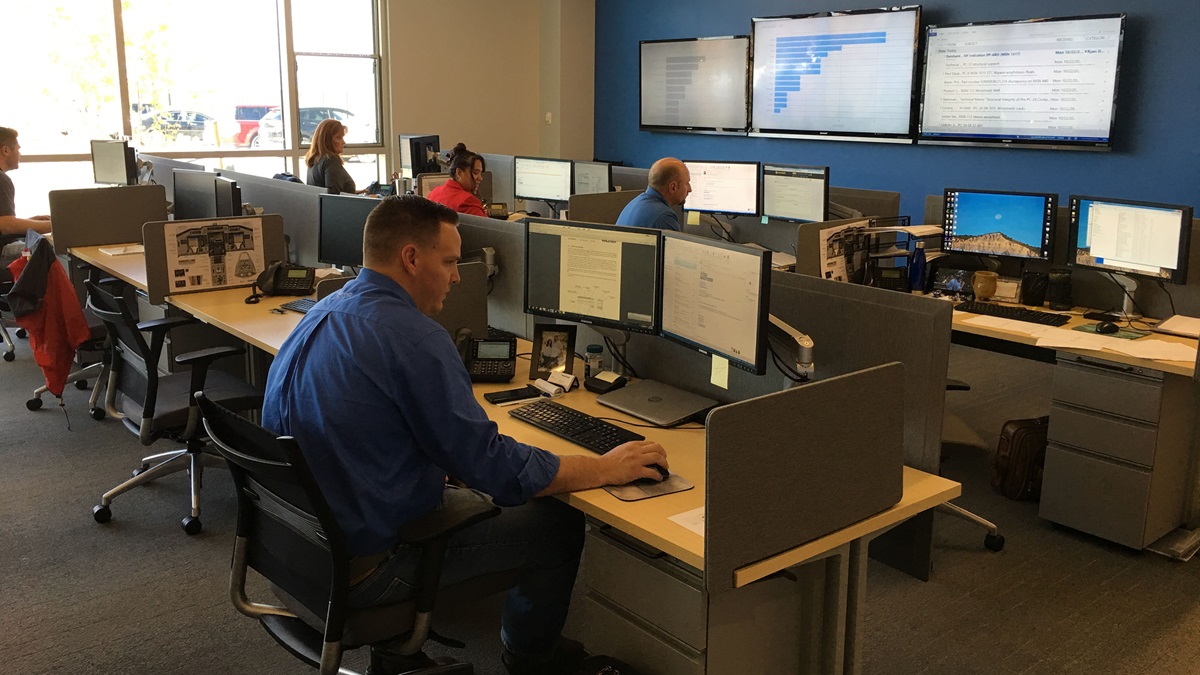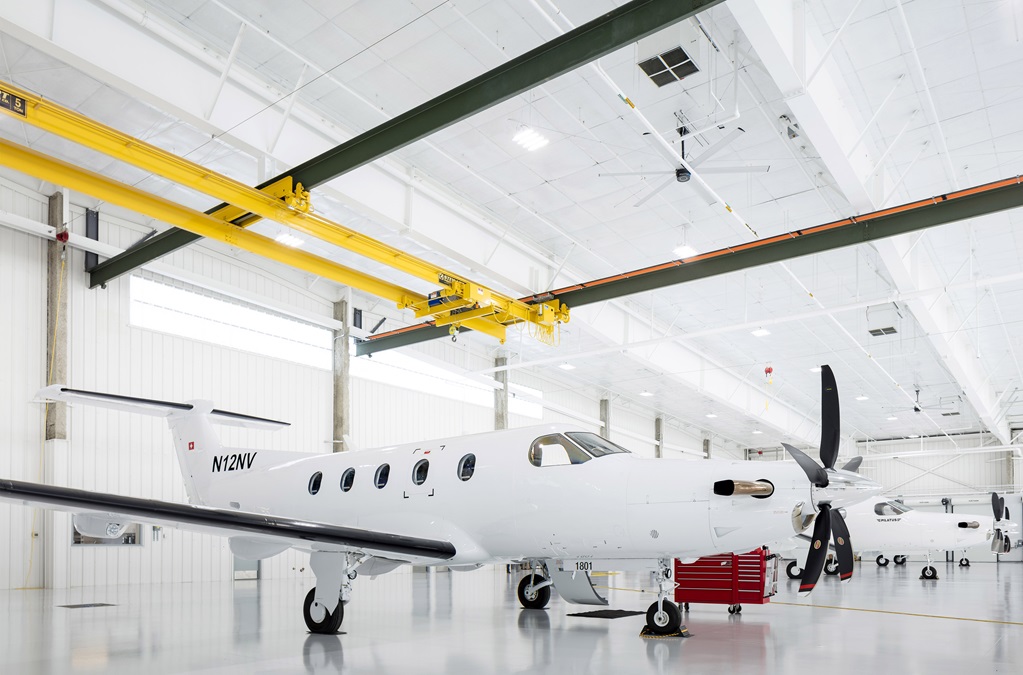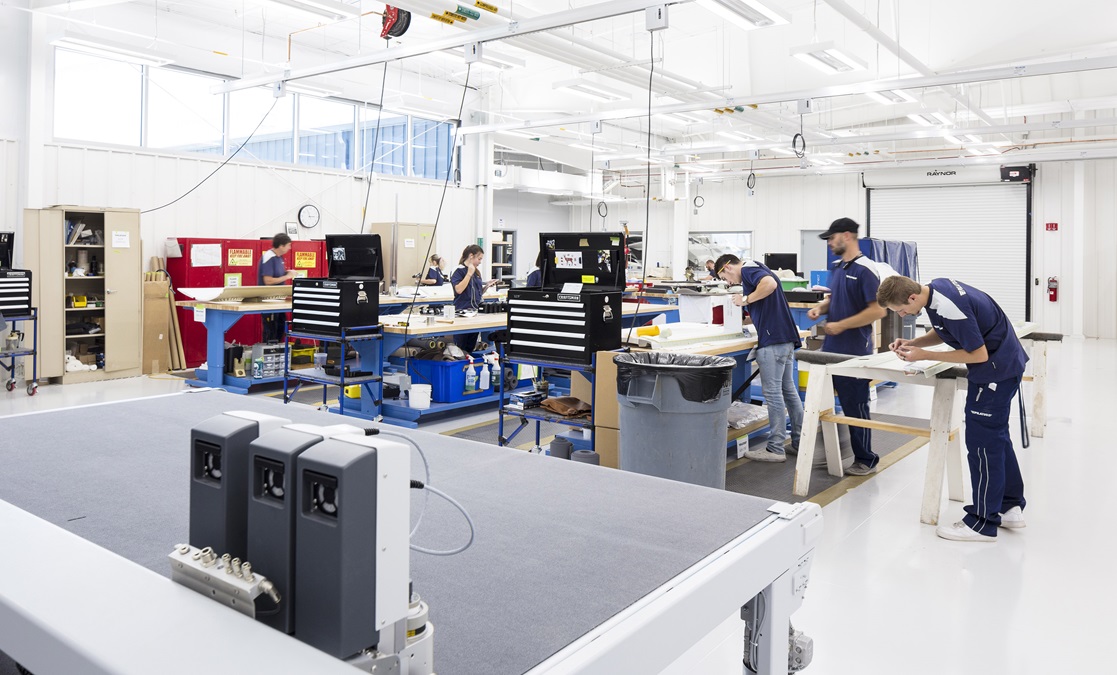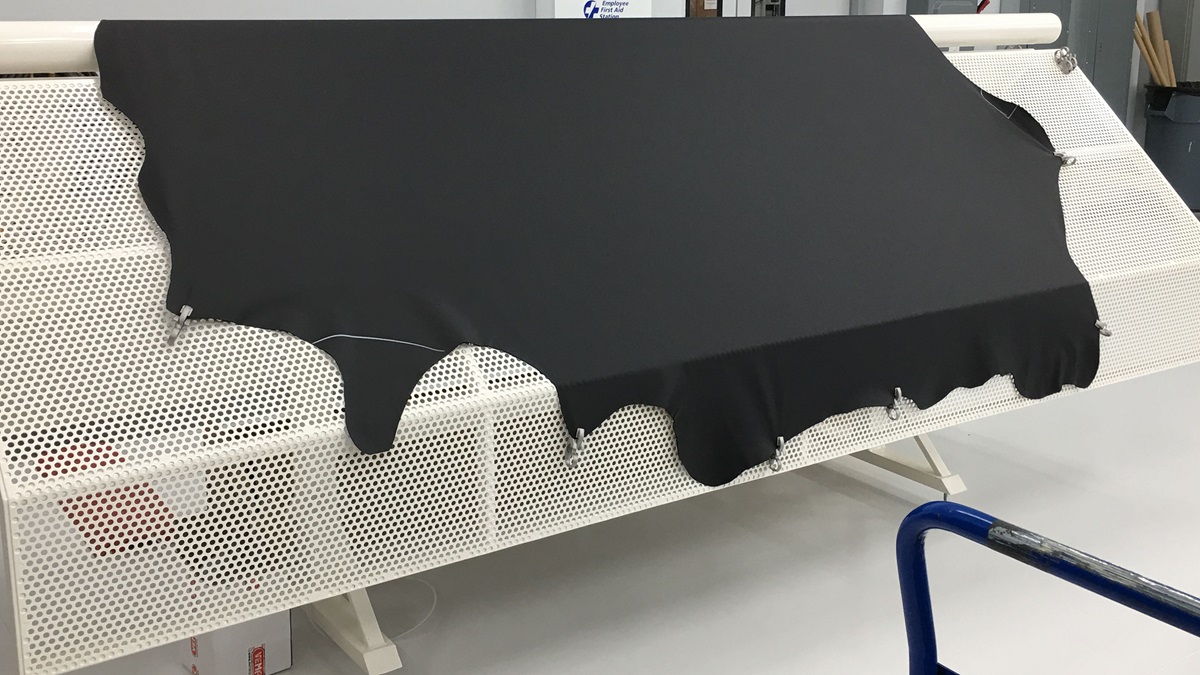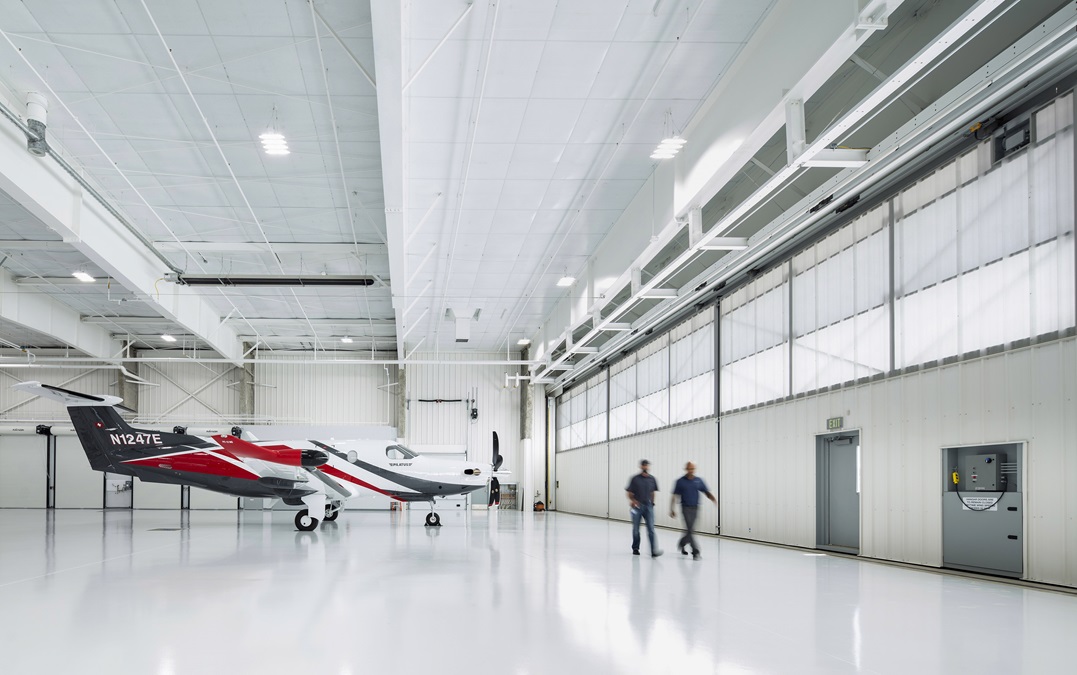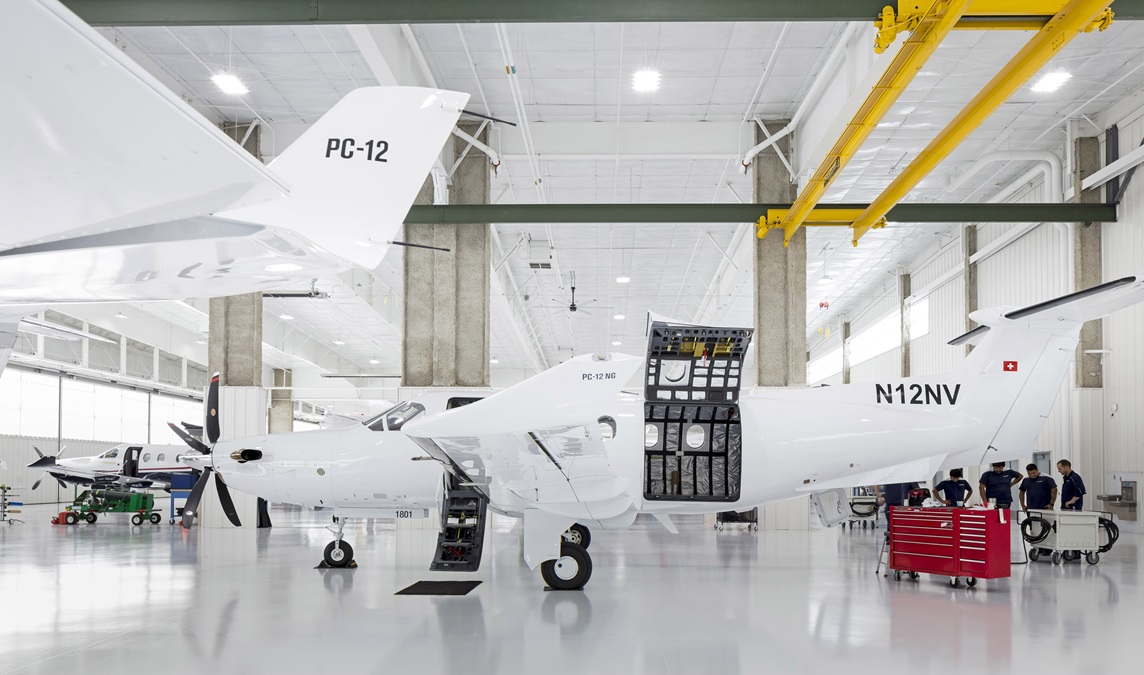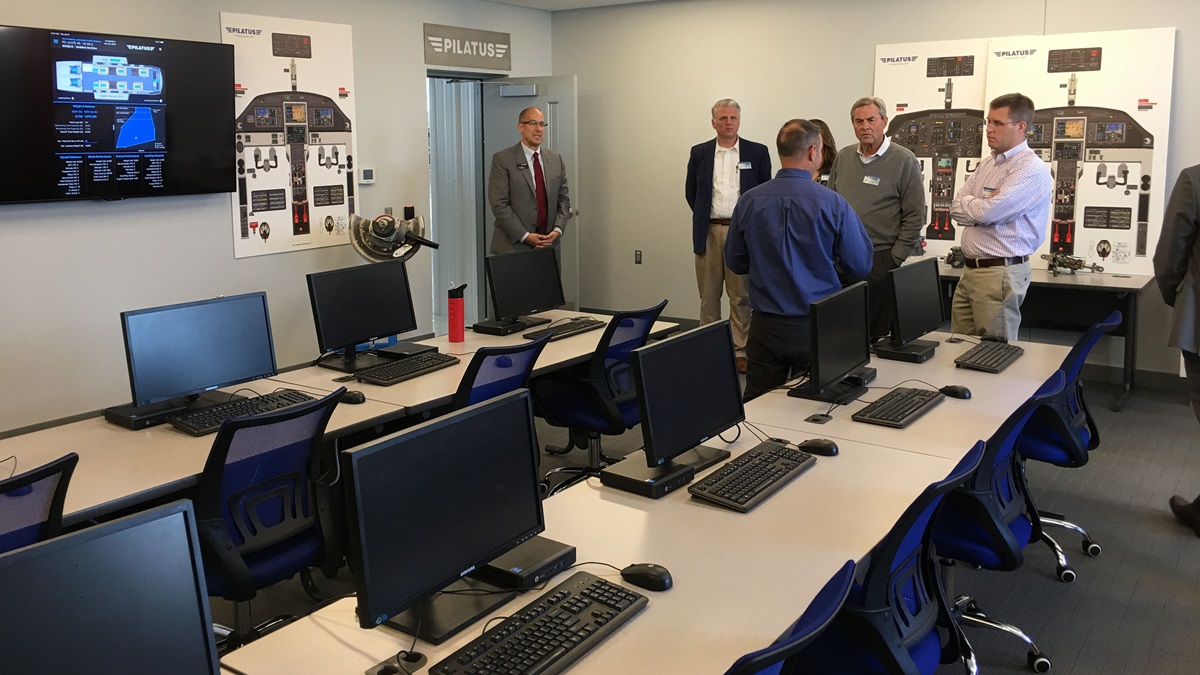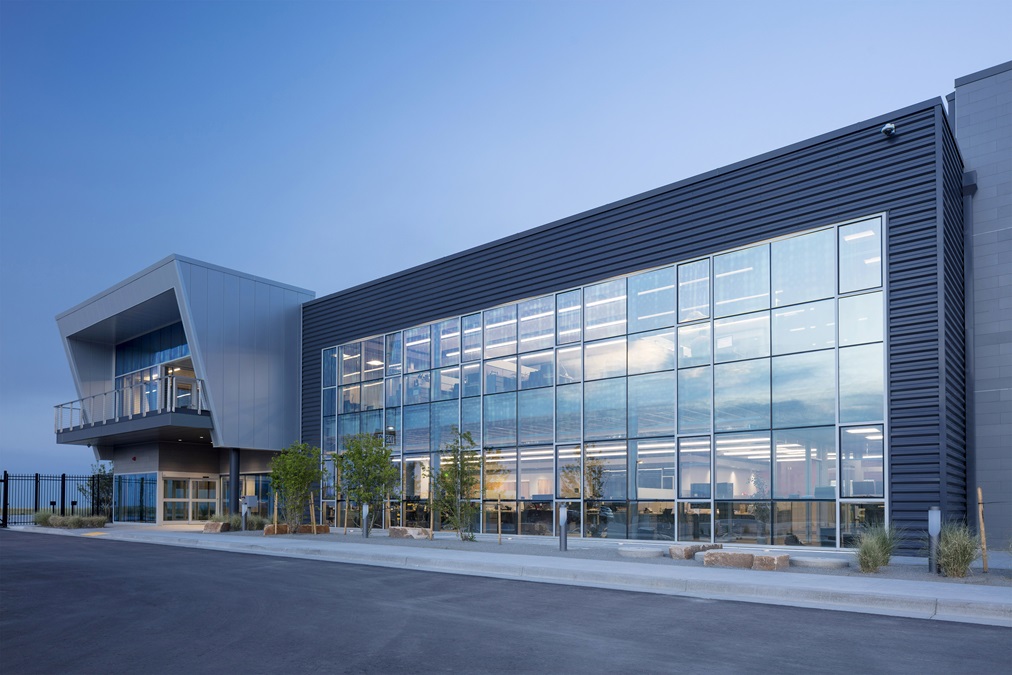Pilatus celebrates new completion center
When Pilatus first opened its U.S. offices in 1994, the company leased its small headquarters in a few cramped offices at the Vero Beach, Florida, airport. In 1996, its headquarters moved to the old Jeffco Airport (now Rocky Mountain Metropolitan Airport) in Broomfield, Colorado, where its facilities were spread out over a smattering of buildings. As Pilatus PC–12s became more popular, the company realized that it needed its own, unified headquarters with office space, customer support, and a completion center all under one roof.
The 118,000-square-foot facility has most of its space set aside for completions of the Pilatus PC–12 single-engine turboprop and the company's new PC–24. The airplanes are built at Pilatus’ headquarters in Stans, Switzerland, ferried to the completion center for interior installation and paint, then delivered to customers.
Since the new facility has been in use, 15 PC–12s and five PC–24s have been delivered from the site, which also houses a parts inventory, maintenance training and customer service centers, and executive offices.
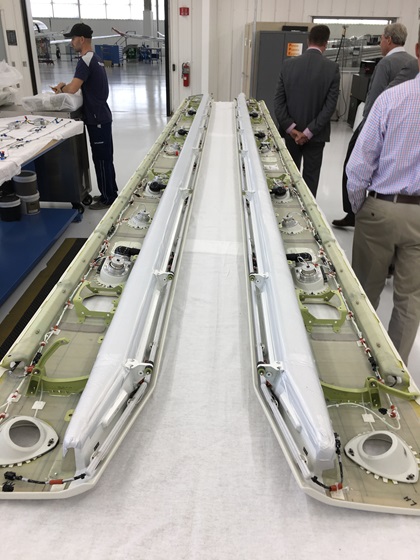
Business has been good for Pilatus, explained Markus Bucher, CEO of Pilatus Switzerland’s office. Some of this can be explained by the recent European approval of single-engine commercial operations, sales to nations needing more border protection capability, and growth of the Chinese market. Bucher said that in 2019, more than 50 percent of Pilatus sales could be to nations other than the United States. A fleet sale to a Chinese feeder airline serving outlying regions is largely responsible.
However, the North and South American markets are the mainstays, representing 60 to 70 percent of annual Pilatus aircraft sales. Typically, some 55 PC–12NGs are completed at Broomfield each year, and another 25 to 30 PC–24s are also expected to leave the new completion center annually.
Thomas Bosshard, CEO of Pilatus Business Aircraft, Ltd in Broomfield, spoke at the event and mentioned Pilatus’ internship initiative—a program begun with the state of Colorado that trains students right out of high school. Students are paid to attend classes and learn trades while working at the new Pilatus facility, and even qualify for a college degree. The program is modeled after the successful apprenticeship programs common in Switzerland and other European nations.
